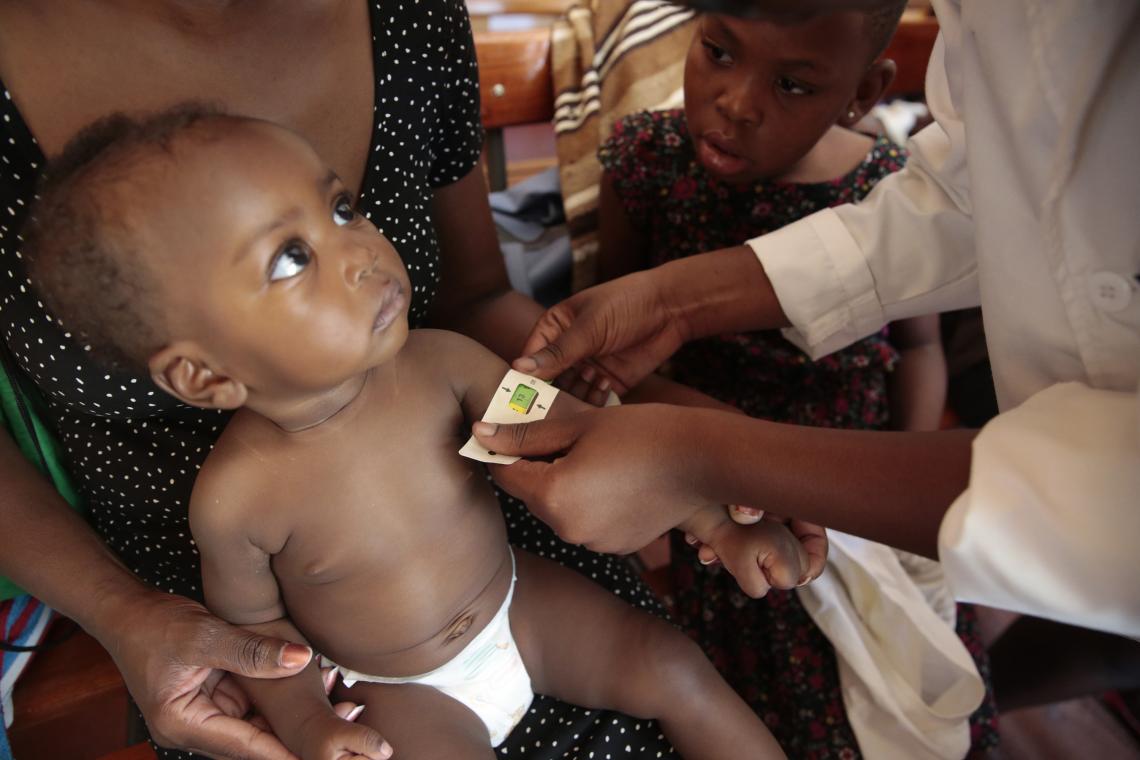
By Tatenda Chimbwanda
BINGA, Zimbabwe – An emergency at Binga District Hospital. 34-year-old Rudo has been in labour for 16 hours. Her blood pressure is high. Her baby’s heartbeat is weak, and the infant is face up – the wrong direction for normal delivery. The lives of both are at risk and a caesarean section is urgently required.
District medical officer, Dr. Goronga, will have to perform surgery. He’s a junior medical doctor who has completed his theoretical training but has limited experience of dealing birth complications like this. However, today, Dr. Goronga approaches the theatre with confidence because he will be assisted in surgery by skilled obstetrics and gynaecology specialist, Dr. Bob Tariro Murove, his clinical mentor.

With UNICEF support, Zimbabwe’s Ministry of Health and Child Care is implementing a clinical mentorship programme in 20 districts, which have low coverage indicators for maternal, newborn and child health. The programme is designed to strengthen health worker skills and improve the quality of care in the management of emergency obstetric and neonatal complications before, during and following childbirth.
Thanks to funding from UNICEF Australia, Twice the Doctor Foundation and the Australian Government through the Australian NGO Cooperation Program (ANCP), the mentorship programme is also building growing partnerships with professional associations such as the Obstetrician/Gynaecologist and Paediatrician Societies and creating favourable environments for skill application and behaviour change.
Dr. Goronga describes the mentorship programme as empowering. “In the past, it was difficult for us junior doctors to approach senior doctors because we did not have a relationship with them,” he explained. “Thanks to the mentorship programme, if I have any complicated case that I am not sure of, most of my mentors are just a phone call away. I call them and explain the clinical situation and they give me their recommendations.”
- Chamisa under fire over US$120K donation
- Mavhunga puts DeMbare into Chibuku quarterfinals
- Pension funds bet on Cabora Bassa oilfields
- Councils defy govt fire tender directive
Keep Reading
“Thanks to the mentorship programme, if I have any complicated case that I am not sure of, most of my mentors are just a phone call away. I call them and explain the clinical situation and they give me their recommendations.”
According to his mentor, Dr. Murove said, “Working with the junior doctors directly has improved their skill set, and this has been a great benefit to their patients. Doctors, like my mentee Dr. Goronga, are already capable and knowledgeable, we just come in to enhance this knowledge and teach them better techniques. In Rudo’s case, for example, Dr. Goronga, who already knew how to do a caesarean section, learned how to reduce post-partum haemorrhage following a caesarean -section, as this is one of the major causes of maternal mortality,” said Dr. Murove.
Elaborating further Dr. Goronga said, “When we examined her…the baby’s face was positioned toward Rudo’s stomach instead of her back. This is typically called the occipito-posterior position. In most cases, babies will spontaneously rotate themselves to face in the right direction before birth. But with Rudo’s child this did not happen.”
“One of the complications I used to face in such cases as Rudo’s is tearing. Moving the baby upside down can cause extensive tearing which would make her prone to postpartum haemorrhage. My mentor took me through how to avoid such tearing, and when we operated on Rudo she did not sustain tears,” said Dr. Goronga.

Since the introduction of the clinical mentorship programme in July 2018, health professionals are better equipped to deal with most maternity cases and Binga district hospital has not recorded any deaths during delivery.
In addition, with enhanced skills, doctors at Binga district hospital no longer need to refer patients to the provincial hospital in Mpilo, 420km away. This has resulted in reduced fuel costs required to transport patients to the provincial facility. “The money that was used for fuel is now used to mobilise resources for managing the patients. This has massively helped in many levels including improved clinical care, better outcomes for the patients and saving the scarce resources,” said Dr. Murove.
“I would say that the mentorship has been very beneficial,” said Dr. Goronga. “Even looking at some of the statistics that we have been getting, we are realizing a decrease in maternal mortality and improvement in managing the complications that we are having at a district level.”
On this day, the mentorship relationship also had a very positive outcome for one relieved and happy mother. “We were able to deliver a healthy baby girl for Rudo!” said Dr. Goronga.











